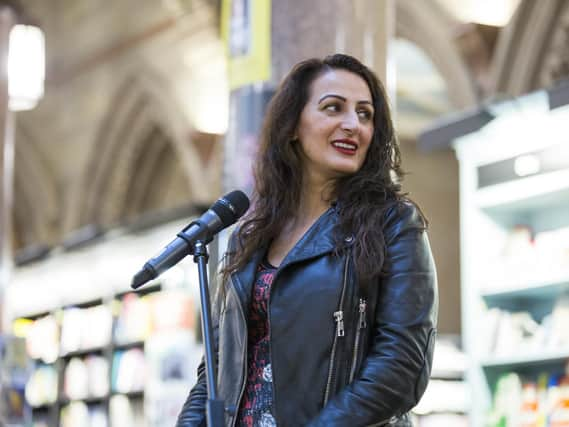How Bradford Literature Festival has become a cultural beacon in the city


“That marker felt significant for us as an organisation, the festival had grown so much that if felt like a good point to have a backwards look – to think about how we started out, where we are now and where we are looking to go.”
In 2019, over 400 events took place across 10 days in late June and early July, with more than 70,000 people attending. Things were a little different in 2020.
Advertisement
Hide AdAdvertisement
Hide AdAslam and her team started work on compiling a report around a year ago, reflecting on the festival’s growth and development, achievements and plans for the future, but then the world suddenly changed. And like every other arts organisation, BLF had to adapt quickly to the new reality.
“We were just on the point of being able to go live with releasing details of the programme for the summer when Covid came along and we had to pivot on a sixpence,” says Aslam.
“So we set about curating something that was quintessentially BLF but in digital form, that stood out from other festivals.” They put together a programme of 14 digital events – ranging from Anne Brontë, to Sufi poetry, to the future of the North – which were watched by around 27,500 people.
That has always made BLF stand out from the crowd is the depth and breadth of the conversation and the range of opportunity for engagement that their programme offers, reflecting the rich diversity of Bradford’s cultural heritage and identity.
Advertisement
Hide AdAdvertisement
Hide Ad“The key thing for me is that the festival reflects all our communities,” says Aslam. “We want people to feel that they are being represented and that their voice is being heard. From the beginning we did what felt right and natural and what was going to bring people together.”
That means the festival not only consistently attracts some of the biggest names in literature, it also provides a safe, inclusive space for measured debate around some of the most pressing issues of the day.
“We are not a publisher-led festival, we are led by topics and conversations around contemporary concerns and by an ambition to tackle things head on.”
That has been a key focus from the outset and the five-year review, published last autumn, confirms that they have certainly attained, and in many cases exceeded, their aims.
Advertisement
Hide AdAdvertisement
Hide AdAs Aslam writes in the report’s introduction they have been successful in their ambition ‘to deliver transformational impacts on our local communities, our city and the national sector.’
While Aslam and her team are celebrating their successes, they are certainly not going to be resting on their laurels. “We shouldn’t underestimate the challenges ahead,” she says.
“We work with looked after children, homeless shelters, women’s centres, refugees and asylum seekers, those partnerships are really important to us, and some of our communities have been the hardest hit by the pandemic. We are looking forward, planning for a festival in the summer – probably a mixture of live and digital events – and we will continue to showcase diversity in all its forms.”
bradfordlitfest.co.uk
Comment Guidelines
National World encourages reader discussion on our stories. User feedback, insights and back-and-forth exchanges add a rich layer of context to reporting. Please review our Community Guidelines before commenting.